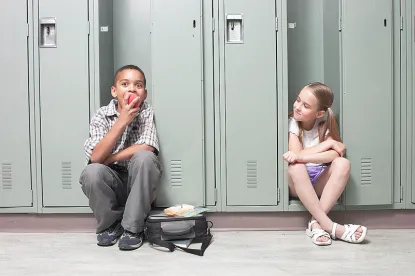Last week, the U.S. Supreme Court held that a Pennsylvania school district went too far when it suspended a student from participation in the school’s cheerleading squad based on “vulgar” comments made about the coach on the student’s personal social media account. In an 8-1 decision, the high court emphasized that while schools have some latitude under the First Amendment to regulate student speech outside of school, in this specific circumstance their authority to do so was “diminished”.
Although the Court reached the same ultimate result as the Third Circuit, it rejected the Third Circuit’s conclusion that the school lacked the authority to regulate student speech off campus in any circumstance. “Unlike the Third Circuit, we do not believe the special characteristics that give schools additional license to regulate student speech always disappear when a school regulates speech that takes place off campus,” Justice Stephen Breyer noted in the majority opinion. “The school’s regulatory interests remain significant in some off-campus circumstances.”
In reaching its conclusion, the Court primarily addressed its ruling in Tinker v. Des Moines Independent Community School District from 1969, in which the Court ruled in a landmark decision that a school can only interfere with student speech if it “substantially disrupts” school operations. However, the Court did not delve into where to draw the line on what type of speech qualifies as such that can be considered “substantially disruptive” off campus. Instead, the Court highlighted three features of off campus speech that often, “even if not always”, diminish a school’s latitude to regulate such speech: 1) “Geographically speaking” off campus speech generally is considered parental responsibility, rather than a school’s responsibility, 2) a school’s inability to regulate a student’s speech 24/7, particularly regarding speech relating to politics and religions, and 3) a school’s interest in protecting “unpopular speech” particularly when it takes place off campus, to protect the “marketplace of ideas”.
In the specific circumstances of the case, the Court emphasized that the school failed to prove that the student’s off campus speech at issue caused a “significant disruption” of classes or extracurricular activities. The “vulgar” messages were sent on a social media platform that only preserves communications for 24 hours, sent to a “select group of “friends””, and only spread through rumors by other students. The disruption/lack of morale such messages may have caused to the student’s fellow classmates and teammates could have more effectively been mitigated by the school administration “quelling” the discussion and promoting positive speech, rather than suspending the student from extracurricular activities. “If today’s decision teaches any lesson, it must be that the regulation of many types of off-premises student speech raises serious First Amendment concerns, and school officials should proceed cautiously before venturing into this territory”, Justice Breyer concluded.
Though the case before the Supreme Court addresses the First Amendment and regulation of speech in the school context, it is easy to draw parallels between student speech off campus, and an employee’s speech outside the workplace. Over the past few years, states around the country have enacted laws limiting an employer’s ability to access the personal social media accounts of job applicants and employees. However, these laws generally do not prohibit employers from conducting certain investigations, such as to ensure compliance with state or federal laws, regulatory requirements or prohibitions against work-related employee misconduct based on the receipt of specific information about activity on an employee or applicant’s personal online account. Employers also may monitor, review, access or block electronic data stored on an electronic communications device paid for, in whole or in part, by the employer, or traveling through or stored on the employer’s network.
When companies are faced with adverse social media activity or campaigns, whether it be by employees, customers, bloggers, etc., they frequently are unprepared to take the appropriate steps to investigate, or to weigh the legal, business, reputational, and related risks in deciding what actions, if any, to take. For this reason, it is important to have a clear workplace social media policy in place to help prevent the likelihood of an incident or at least limit its impact. But while courts and the National Labor Relations Board (NLRB) seem to be employer friendly of late in approval of such policies, it is important to tread carefully, aiming to develop a policy that achieves the company’s legitimate business interests without compromising its employees’ right to privacy under statutory and common law and rights related to freedom of speech. Employers (and schools, alike) should continue to exercise care when addressing and/or responding to their employees’ (and students’) social media usage, particularly when it is “off premises” or “off the clock.”





 />i
/>i
